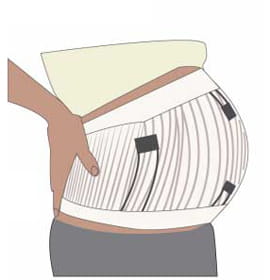Drexel Biomed Opens its Doors to Innovation Community

- ‘Too Much Going On’: Autistic Adults Overwhelmed by Nonverbal Social Cues
- Drexel’s College of Nursing and Health Professions Receives $1 Million for Scholarships from the Bedford Falls Foundation – DAF to Address Nursing Workforce Shortage
- U.S. Department of Education Provides Final Approval of Drexel and Salus Merger
- Spotting Bad Batteries Before They Malfunction

A wristwatch that can check your blood pressure, a belly band for expecting mothers to monitor their baby’s vital signs and a way for doctors to sterilize their hands without getting them wet – these innovations are just a few of the ideas that will be on display as Drexel University and the Wallace H. Coulter Foundation provide a glimpse into the future of medical technology at the Innovation Technology & Talent Showcase on Oct. 31.
As part of the Global Innovation Partnership Week hosted by Drexel’s School of Biomedical Engineering, Science and Health Systems and the Office of International Programs from Oct. 29 to Nov. 2, Drexel will offer a look inside its Coulter-Drexel Translational Research Partnership program and the health care technologies that it is strives to guide into commercial use.
“Investors, companies and tech-curious individuals will have a great opportunity to see the lifesaving biomedical research and development that happens at Drexel,” said Dr. Banu Onaral, director of the School of Biomedical Engineering. “It’s also a chance for the Philadelphia innovation community to learn about the Coulter-Drexel program and how it can streamline the process of licensing, testing and commercializing new technologies.”
The goal of the Coulter-Drexel Translational Research Partnership is to support collaborative research that addresses unmet clinical needs and leads to improvements in health care by accelerating the transfer of innovations from academia to the marketplace.
In order to do this, Drexel and the Wallace H. Coulter Foundation partnered to create a $20 million endowment that provides funding and guidance to shepherd innovators through the technology transfer process along with the companies and investors interested in buying and commercializing their inventions.
Flexibility in the program also allows it to collaborate with companies to identify a market opportunity and have the program fund the research and clinical trials. The company can then license the resulting technology.
“We work with the medical device industry to identify and mentor technologies of interest at the beginning of the pipeline,” said Davood Tashayyod, the Coulter project director at the School of Biomedical Engineering. “There are also companies and investors who will visit and revisit the technologies that come out of the pipeline and benefit from our no-strings-attached investment in those technologies.”
There are currently 20 technologies in the Coulter-Drexel Partnership’s pipeline. Visitors can meet with the researchers, clinicians and investors who are involved with each of the projects, as well as learning about research that is on the horizon. The groups will present posters and prototypes of their devices and discuss their progression through the clinical testing and commercialization process.
“Universities have been the source of some of society’s greatest innovations,” said Robert McGrath, Drexel’s senior associate vice president for technology commercialization. “Having researchers, doctors and top biomedical engineering students together in one place is a great opportunity for people to see science at its best and to imagine the possibilities.”
The Innovation Talent & Technology Showcase, which is at 2:30 p.m. on Wednesday, Oct. 31 at the Bossone Research Enterprise Center is part of Drexel’s Global Innovation Partnership Week. The school’s weeklong summit brings together its international and domestic academic partners in translational research. For more information about the showcase contact Davood Tashayyod (davood.tashayyod@drexel.edu).
Drexel News is produced by
University Marketing and Communications.